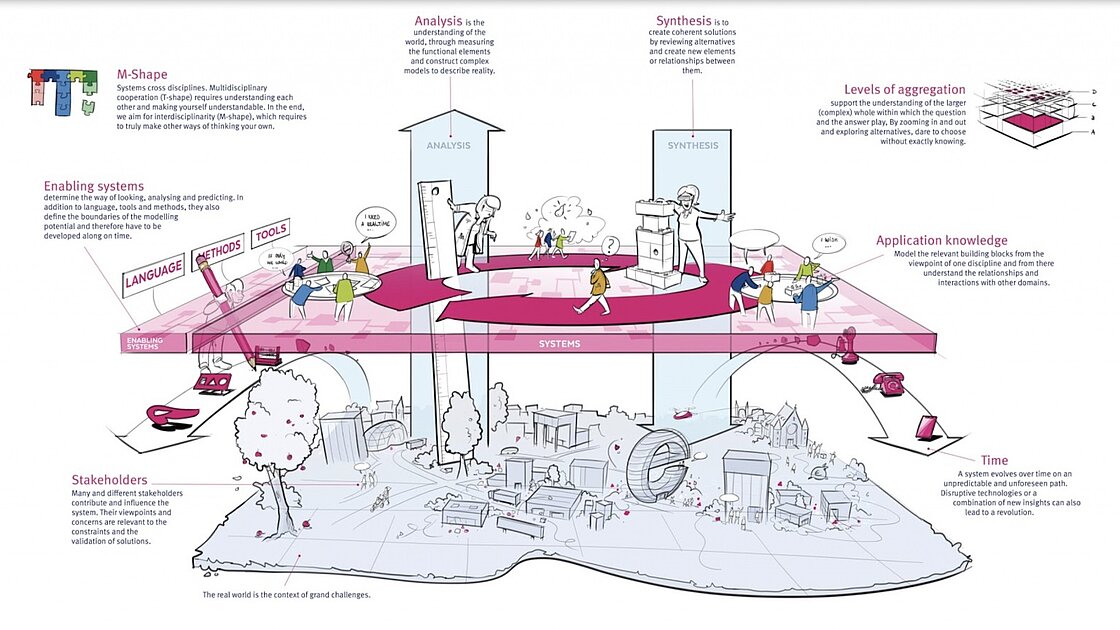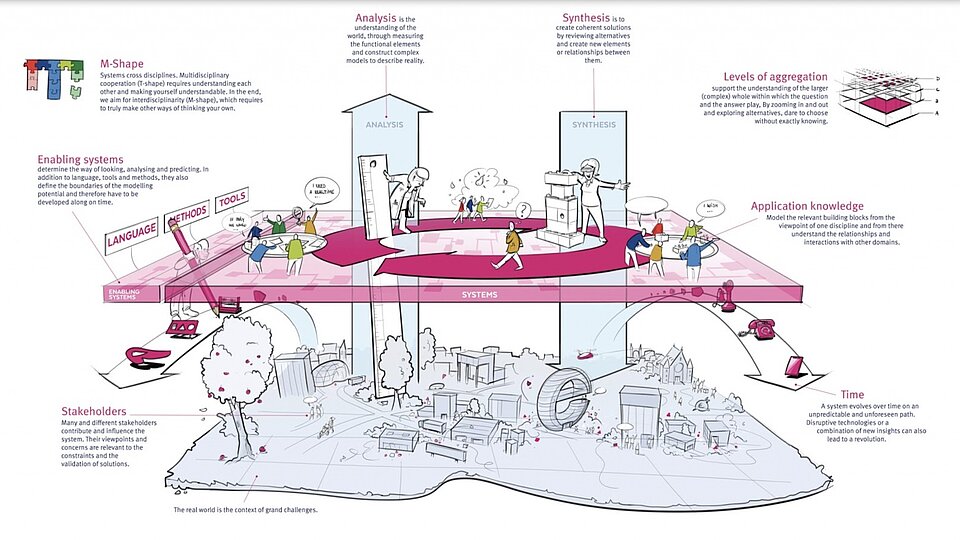“Brainport is world-class in Systems Engineering” – sounds good, but how do you secure that position?
"Despite being world-class, we do not have programs in systems engineering for high-tech equipment at our universities. We want to change this."
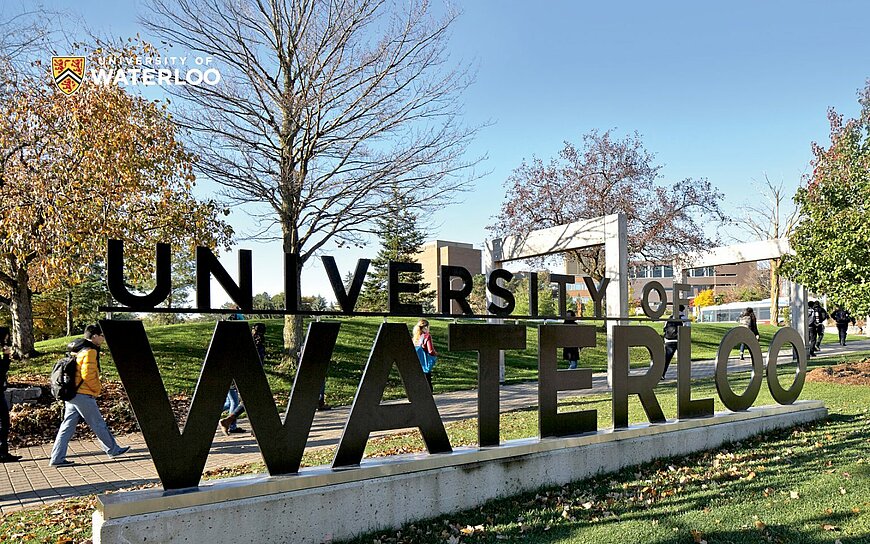
The Dutch high-tech manufacturing industry is highly dependent on people specializing in systems engineering. But it is precisely in this area that there is little supply of qualified personnel. Also, the expertise is often ‘hidden’ behind the walls of specific companies. In order to strengthen the foundation of the sector, there should be more structure in capturing and further disseminating that knowledge. Dutch technical universities could play a role in this effort. To investigate this idea, a delegation from Brainport Eindhoven recently visited three North American universities where such a course does exist: Waterloo University, Stevens Institute of Technology, and MIT in Boston. In a three-part series, we discuss the state of affairs. Today: part 2. (read part 1 here)
Brainport certainly doesn’t have to start from scratch when it comes to training and education in systems engineering. Holland Innovative already offers a number of training courses and, with Jeroen de Mast, it has an expert in the ranks who works as a professor both at Waterloo and at JADS in Den Bosch. De Mast also sees starting points, for example from the Design for Six Sigma training courses that Holland Innovative offers. “In the long run, we could have these evolve into fully-fledged Systems Engineering courses. I also think that we are very strong in the combination of innovation and data science on the one hand and project management on the other.”
Reliability and Robust Design
According to CEO Hans Meeske of Holland Innovative, the challenge is to position its own methods and methodologies in those of Systems Engineering. “The complexity of system and machine development in the Brainport region is so great that reliability or robust design specifications aren’t always asked for. This really needs to be changed and collaboration with Waterloo, MIT, and Stevens can certainly help us in this field.”
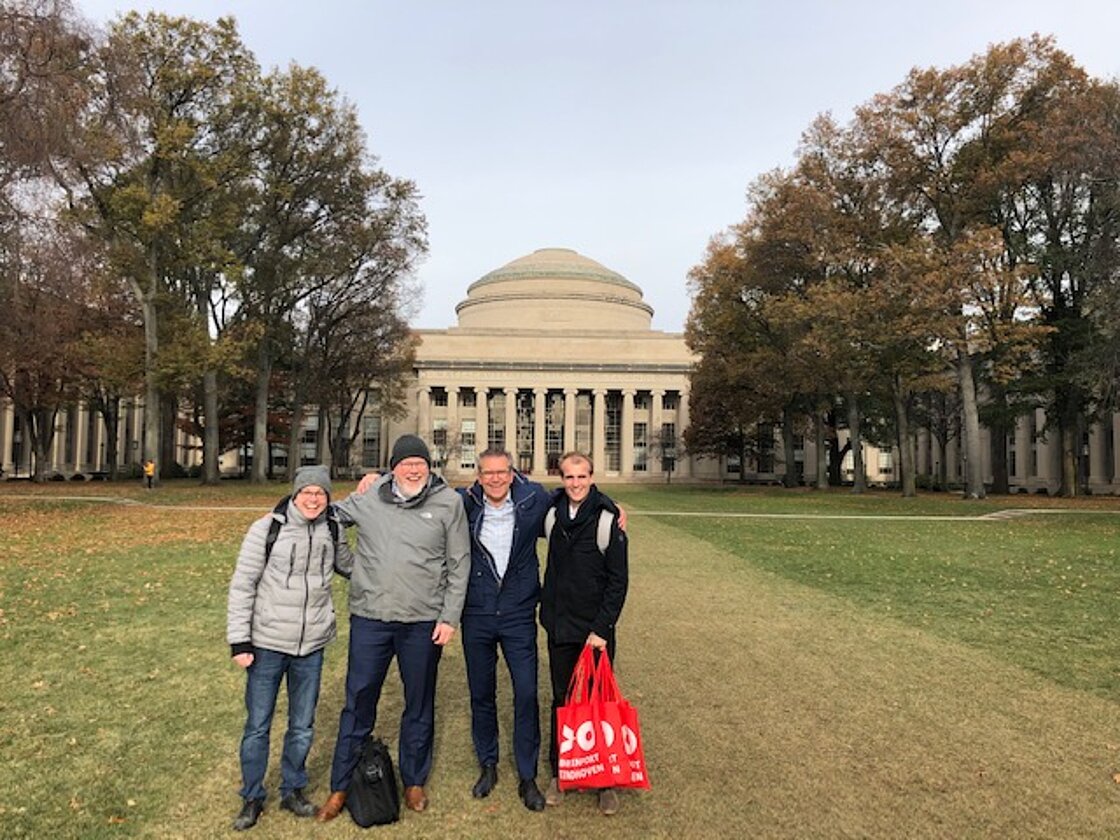
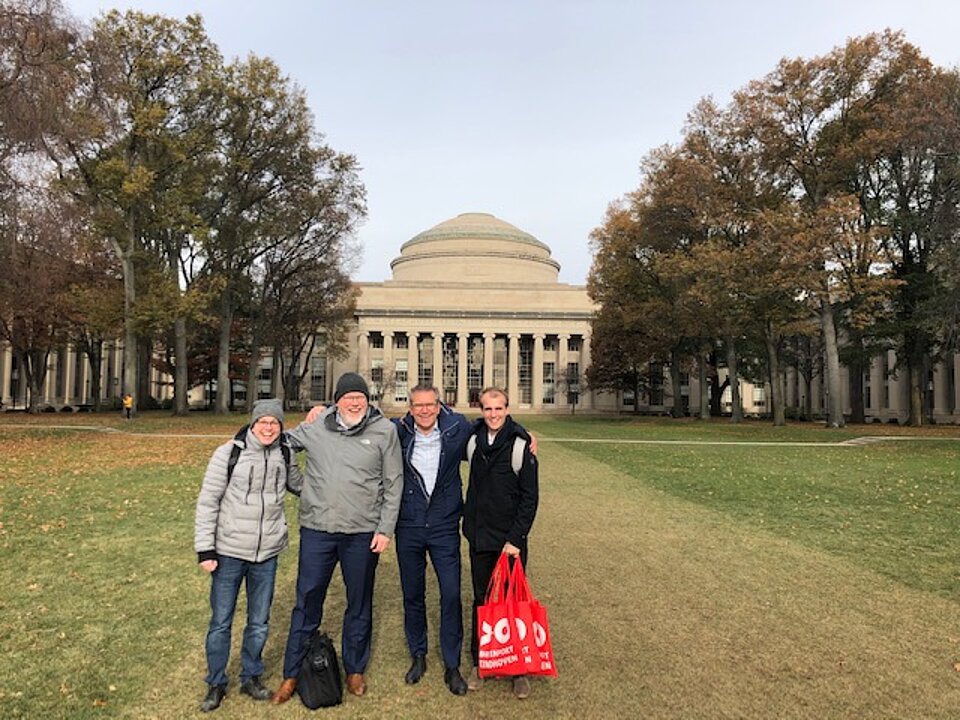
Rutger van Poppel, International Business Developer at Brainport Development, noted during the trip that Brainport is held in high esteem by the three famous universities. “Our way of working is unique, and they have noticed that. We must be aware that we have a lot to offer them as well. In America and Canada, the large companies solve their systems engineering challenges all by themselves, while we are used to doing it through cooperation ‘in the chain’: suppliers play at least as important a role as the big manufacturing companies. And it’s mainly about high-quality systems engineering. The theme of collaboration, which is so obvious for us, really strikes a chord there. At one point they called our ecosystem ‘systems engineering on its own’. The question for us is now: are we sufficiently aware of this and does everyone know that the underlying element is ‘systems engineering’? If we forget that, we can lose our strength.”
“We really have something to offer. The only question is: are we sufficiently aware of this and does everyone know that the underlying element is ‘systems engineering’?”
Rutger van Poppel
This is one of the reasons why, according to Van Poppel, it is of the utmost importance that steps are taken where education is concerned. And even though this is a lengthy process while the need is already high right now, there’s no reason to leave it at that. “It is important not to wait too long with follow-up steps. Can we already talk to the four technical universities in the Netherlands to see if we can come up with a joint systems engineering course that matches the existing specialties, such as aviation in Delft and agrifood in Wageningen? Or do we first have to do research with a broader group? In any case, steps are needed right now.”
World class
Ton Pijnenburg, deputy director of technology development at VDL ETG and a part-time fellow of the High Tech Systems Center, strongly agrees. “Our region is world-class in the multidisciplinary development and production of state-of-the-art, high-tech equipment,” he says. “The development is done in multidisciplinary teams using proven but implicit systems engineering processes. Due to the implicit nature, it is currently difficult to train students in these processes, let alone research any potential improvements. Hence the paradoxical situation that, despite being world-class, we do not have programs in systems engineering for high-tech equipment at our universities. We want to change this.”
Van Poppel can’t say it clearly enough: it’s about making explicit what is mostly implicit up to now. “The processes that are now being applied have been created step by step through decades of experience within these companies. That was very good, but it also has two drawbacks: the knowledge often lingers within the walls of a company and it takes a very long time to get where we are. In today’s rapidly changing and competitive markets, that time is no longer there. Especially not for suppliers and SMEs. The competitive position of our region is therefore at stake and with our trajectory, we have to ensure the sustainable safeguarding of one of the foundations of our leading high-tech industry.”
The backbone
An analysis of all courses at TU/e and Fontys has revealed relevant courses for the subject of design engineering and systems engineering. “This is already good news, because conceptually, as we have also seen at Waterloo University, a ‘backbone’ can be built using existing courses and contributions from the industry in the Brainport region – and perhaps internationally. We can count on interest and support from the business community. We hope to be able to take further steps soon”.
The TU/e has made a visualization of the subject System Thinking. Just like at Waterloo, personal development can also be seen here in the form of T-shaped to M-shaped professionals.
